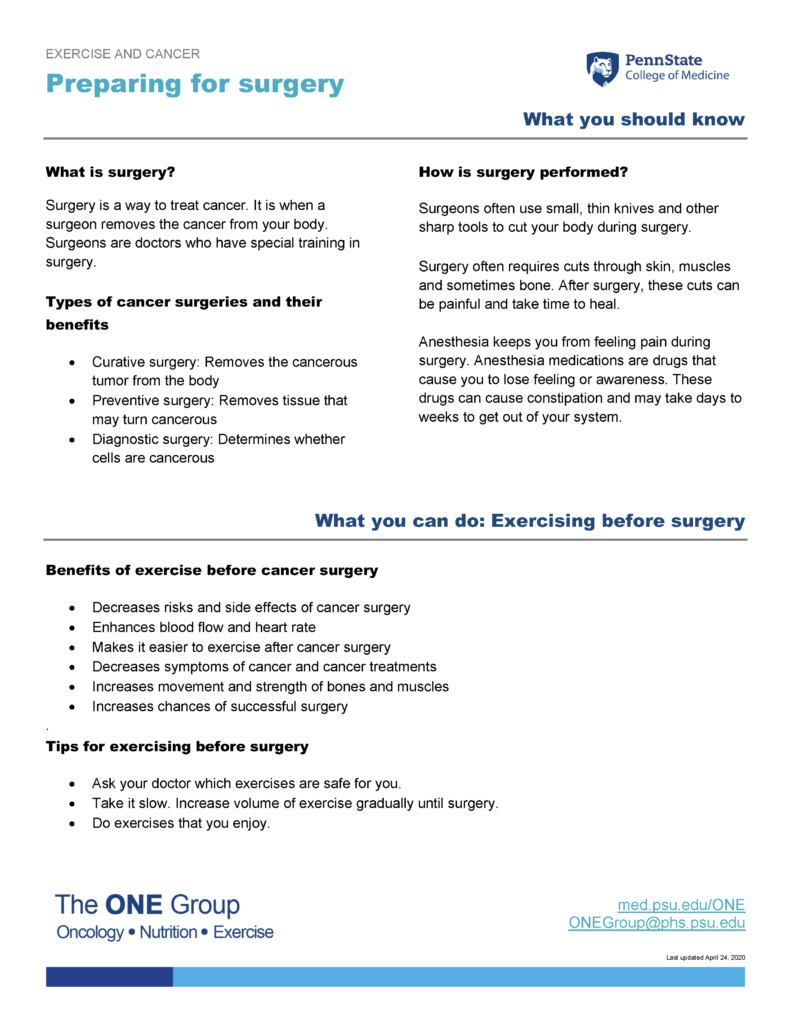Learn about preparing for cancer surgery in this guide from The ONE Group (Oncology – Nutrition – Exercise) at Penn State College of Medicine.
Jump to topic
Search
What you should know
What is surgery?
Surgery is a way to treat cancer. It is when a surgeon removes the cancer from your body. Surgeons are doctors who have special training in surgery.
Types of cancer surgeries and their benefits
- Curative surgery: Removes the cancerous tumor from the body
- Preventive surgery: Removes tissue that may turn cancerous
- Diagnostic surgery: Determines whether cells are cancerous
How is surgery performed?
Surgeons often use small, thin knives and other sharp tools to cut your body during surgery.
Surgery often requires cuts through skin, muscles and sometimes bone. After surgery, these cuts can be painful and take time to heal.
Anesthesia keeps you from feeling pain during surgery. Anesthesia medications are drugs that cause you to lose feeling or awareness. These drugs can cause constipation and may take days to weeks to get out of your system.
What you can do: Exercising before surgery
Benefits of exercise before cancer surgery
- Decreases risks and side effects of cancer surgery
- Enhances blood flow and heart rate
- Makes it easier to exercise after cancer surgery
- Decreases symptoms of cancer and cancer treatments
- Increases movement and strength of bones and muscles
- Increases chances of successful surgery
Tips for exercising before surgery
- Ask your doctor which exercises are safe for you.
- Take it slow. Increase volume of exercise gradually until surgery.
- Do exercises that you enjoy.
Possible exercises you can try
- Walking
- Swimming
- Resistance exercise
- Playing sports such as racquetball
Note: Exercise in the weeks prior to surgery is well-documented to improve surgical outcomes.
Where can I find more information about aerobic and strength-training exercises?
If you are interested in starting aerobic and/or strength-training exercises, The ONE Group (Oncology – Nutrition – Exercise) provides videos demonstrating proper form for more than 50 exercises.
Notes
Contact your physician if:
- You feel extreme pain.
- You pass out while exercising.
- You experience loss of control.
References
- American Cancer Society
- National Cancer Institute
- Stanford Health Care

